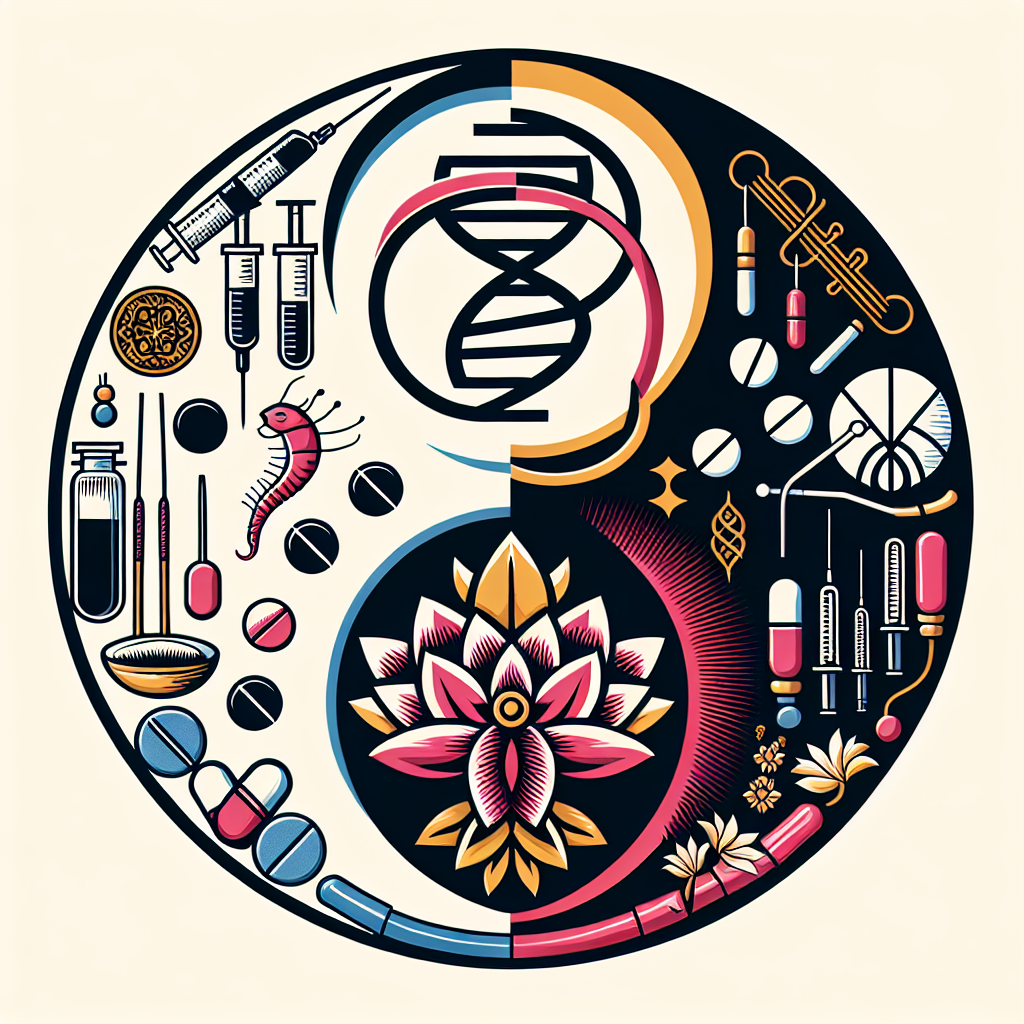Integrating Paths to Recovery: Combining Western Medical Advances and Eastern Healing Traditions in Treating Addiction
In the ongoing battle against addiction, a multifaceted monster that ravages minds, bodies, and spirits, the paths to recovery are as diverse as the individuals seeking them. The journey toward healing is not one-size-fits-all, and as our understanding of addiction evolves, so too does our approach to treating it. This evolution has led to an increasingly holistic perspective, one that combines the precision of Western medical advances with the wisdom of Eastern healing traditions. By marrying these seemingly disparate approaches, a more comprehensive and effective treatment paradigm is emerging—one that promises a brighter future for those caught in the grip of addiction.
The Western Approach: Medical Advances in Addiction Treatment
Western medicine, with its deep roots in scientific research and evidence-based practice, offers a range of powerful tools in the fight against addiction. Central to this approach is the understanding of addiction as a disease model, emphasizing biological and neurological components. This perspective has led to significant advances in pharmacotherapy, with medications such as naltrexone, buprenorphine, and methadone playing pivotal roles in managing cravings and withdrawal symptoms.
Beyond pharmacology, Western medicine also offers behavioral therapies, such as Cognitive Behavioral Therapy (CBT) and Motivational Interviewing (MI), which are grounded in psychological research. These therapies aim to modify harmful behaviors and thought patterns, equipping individuals with strategies to cope with cravings and triggers.
Western medical advances have also embraced technology, utilizing digital tools and telehealth services to expand access to treatment. From apps that support sobriety to online therapy sessions, technology bridges geographical gaps, making recovery resources more accessible.
The Eastern Approach: Holistic Healing and Addiction
In contrast to the predominantly analytical and reductionist approach of the West, Eastern healing traditions offer a holistic perspective, focusing on restoring balance and harmony between the mind, body, and spirit. Practices such as acupuncture, yoga, and meditation are central to this approach, each offering unique benefits in the context of addiction recovery.
Acupuncture, a staple of traditional Chinese medicine, is believed to restore balance to the body’s energy flow, or Qi, potentially alleviating withdrawal symptoms and reducing cravings. Yoga, with its emphasis on mindful movement and breathwork, promotes physical strength, flexibility, and mental clarity, helping individuals to manage stress and emotional turmoil. Meditation, particularly mindfulness meditation, encourages practitioners to inhabit the present moment fully, fostering a sense of peace and detachment from cravings.
These Eastern practices also emphasize the importance of diet and herbal remedies in maintaining overall health and well-being, suggesting that nurturing the body naturally can support recovery efforts.
Integrating Western and Eastern Approaches: A Comprehensive Path to Recovery
The integration of Western medical advances and Eastern healing traditions in treating addiction is not merely a theoretical ideal but a practical reality in many treatment centers worldwide. This integrated, or holistic, approach recognizes the complexity of addiction, treating it not just as a series of symptoms to be managed but as a multifaceted condition that affects every aspect of an individual’s being.
One of the most compelling arguments for this integrated approach is its ability to offer personalized care. Addiction manifests differently in everyone, and the factors contributing to it—whether genetic, environmental, psychological, or spiritual—vary widely. By combining the strengths of both Western and Eastern approaches, practitioners can tailor treatments to meet the unique needs of each individual, addressing not only the physical aspects of addiction but also its emotional, psychological, and spiritual dimensions.
For instance, a treatment plan might combine medication-assisted treatment (MAT) to manage withdrawal symptoms and cravings, with CBT to address harmful thought patterns, complemented by yoga and meditation to promote mental and emotional well-being. This comprehensive approach not only targets the immediate challenges of addiction but also fosters resilience and coping strategies for long-term recovery.
Challenges and Considerations
Despite its promise, the integration of Western and Eastern approaches in treating addiction is not without challenges. Cultural differences, varying degrees of acceptance and skepticism, and the need for more standardized training and regulation in some Eastern practices can complicate their incorporation into mainstream treatment programs. Additionally, the scientific evidence supporting the efficacy of certain Eastern practices varies, necessitating further research to establish their role in addiction treatment conclusively.
Moreover, accessibility remains a significant concern. While digital technology has made some aspects of addiction treatment more accessible, comprehensive integrated programs that include both Western and Eastern practices may not be available or affordable to all who need them.
Moving Forward
The path to recovery from addiction is a journey of healing, transformation, and, ultimately, integration. By embracing both Western medical advances and Eastern healing traditions, the field of addiction treatment is evolving toward a more holistic, personalized, and compassionate approach. This integrated path respects the complexity of addiction and the dignity of those who struggle with it, offering hope and a way forward for many.
As we continue to explore and validate the best of what both Western and Eastern approaches have to offer, it is crucial to remain open-minded, evidence-based, and patient-centered. The ultimate goal is not to privilege one tradition over the other but to find the most effective combinations that promote healing and recovery. In doing so, we not only enhance our ability to combat addiction but also enrich our broader understanding of what it means to heal.

